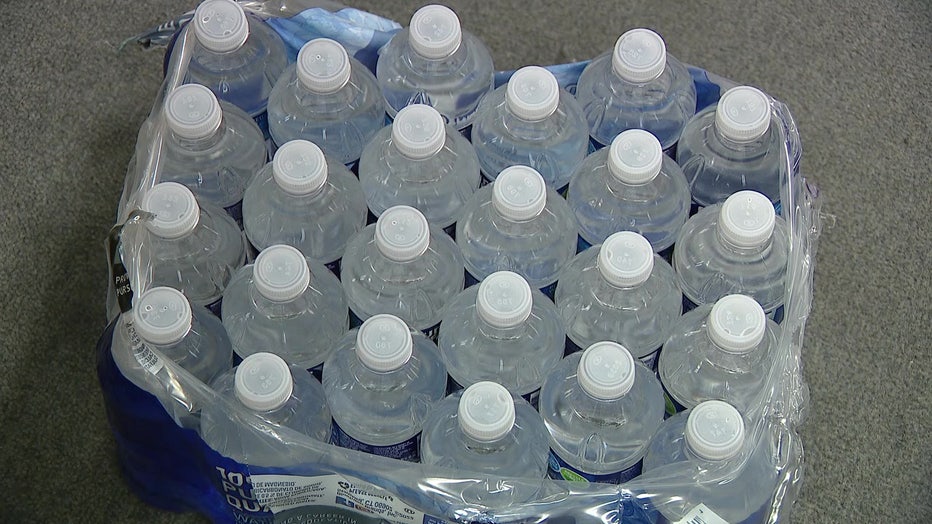100 times more microplastics in water bottles than once thought: Study
TAMPA, Fla. - A new study shows, in some cases, 100 times more bits of plastics in our water bottles than originally thought.
The research, released by the National Academy of Sciences, says two standard water bottles had an average of 240,000 plastic particles, known as nanoplastics and microplastics. These concerning new findings were now discoverable by more powerful optical imaging technology.
We spoke with researchers at the Tampa Bay Estuary Program who are funding projects to find ways to diminish the microplastic impacts.

"I’m not scared, but I am concerned… plastic is part of our lives. It’s everywhere, and I don’t think that’s going to change anytime soon," said Maya Burke of Tampa Bay Estuary Program.
READ: New alternative procedure to open heart surgery gives patients ‘lease on life’
She says, while they research the effects of these plastics on the environment and humans, in the meantime, trust your tap water: "A lot of folks think their tap water isn’t safe to drink so they choose bottled water, but really our tap water goes through much more rigorous safety testing, so by avoiding bottled water you are avoiding microplastics in the bottle itself."

As cancer diagnoses in younger adults rise, some in the medical field are starting to research the correlation between plastics, in our water, food and even air, and serious health issues. A doctor at Moffitt Cancer Center is starting to look into the effects:
"At this point we don’t know very much impact on health impacts, but there are things about microplastics that cause concern," said Dr. Kathleen Egan from Moffitt Cancer Center. "My study at Moffitt looks at whether microplastics in the lung may contribute to lung cancer."
READ: Family of cervical cancer patient keeps her memory alive through education
One lab specialist at St. Petersburg College sent FOX 13 a statement. Becky Krischer said she is not surprised by this new study:
"For just over two years I have been collecting and filtering water samples to look for microplastics. I have compared environmental samples with deionized water, bottled water and tap water on many occasions. I have never failed to find microplastics in any sample, including my own tap water. It is not shocking to me that there are between 10 and 100 times more nanoplastics in bottled water than previously expected. Reducing bottled water consumption and using reusable bottles may curb our plastic consumption, but only if the bottles are unlined, uncoated metal bottles with metal or silicone lids and straws. The effects on our health are still being studied. Hopefully we'll know more soon." – Becky Krischer
As Tampa Bay doctors and researchers further look into the impacts, experts say, it is best to stay away from plastic water bottles.
FOX 13 did reach out to the major water bottle brand manufacturing companies, which include Pepsi Co. and Nestle USA. We have not yet received a response.
Please check back for updated information.

